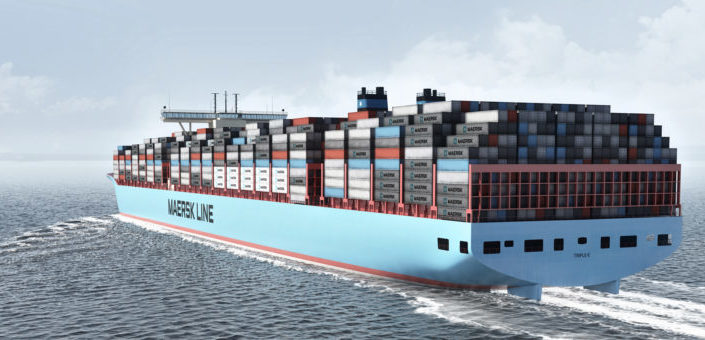As part of its efforts to tackle climate change, Danish shipping giant Maersk announced it will join forces with members of the Dutch Sustainable Growth Coalition (DSGC) to take a tangible step towards decarbonization of ocean shipping.
The coalition includes eight Dutch multinationals – FrieslandCampina, Heineken, Philips, DSM, Shell and Unilever – who aim to drive sustainable growth business models that combine economic profitability with environmental and social progress and in that way contribute to the achievement of the UN Sustainable Development Goals (SDGs).
A pilot, using up to 20% sustainable second-generation biofuels on a large Maersk triple-E ocean vessel, will sail 25.000 nautical miles from Rotterdam to Shanghai and back on biofuel blends alone. This constitutes world’s first at this scale, saving 1,5 million kilograms CO2 and 20.000 kilograms of sulphur, Maersk explained.
The DSGC members initiated and sponsor the pilot. Shell, acted as the fuel supplier for the pilot, and Maersk played the role as operating partner.
With this initiative we focus on Climate Action (SDG 13). We have taken the initiative to partner with A.P. Moller-Maersk on this important effort. This pilot testing biofuel on a cross ocean shipping lane, marks an important step. However, many more innovations are urgently needed. These can only be successfully developed, tested and implemented in industry collaborations like this,
…says Jan Peter Balkenende, Chair of the DSGC.
To reach our net zero CO2 target by 2050, in the next 10 years we need big breakthroughs. Maersk cannot do this alone. That is why this collaboration with DSGC and its members is such an important step in identifying and bringing low carbon solutions to life…Through this pilot, we aim to learn more about using biofuels in general, and to understand the possibilities around increasing its usage in a sustainable and economical way,
…Søren Toft, Chief Operating Officer A.P. Moller – Maersk commented.
The CO2 savings of this journey alone equates to the annual CO2 emitted by over 200 households in a year or 12 mill km traveled in an average car which is 300 times around the world. The voyage will take place between March and June 2019.




























































